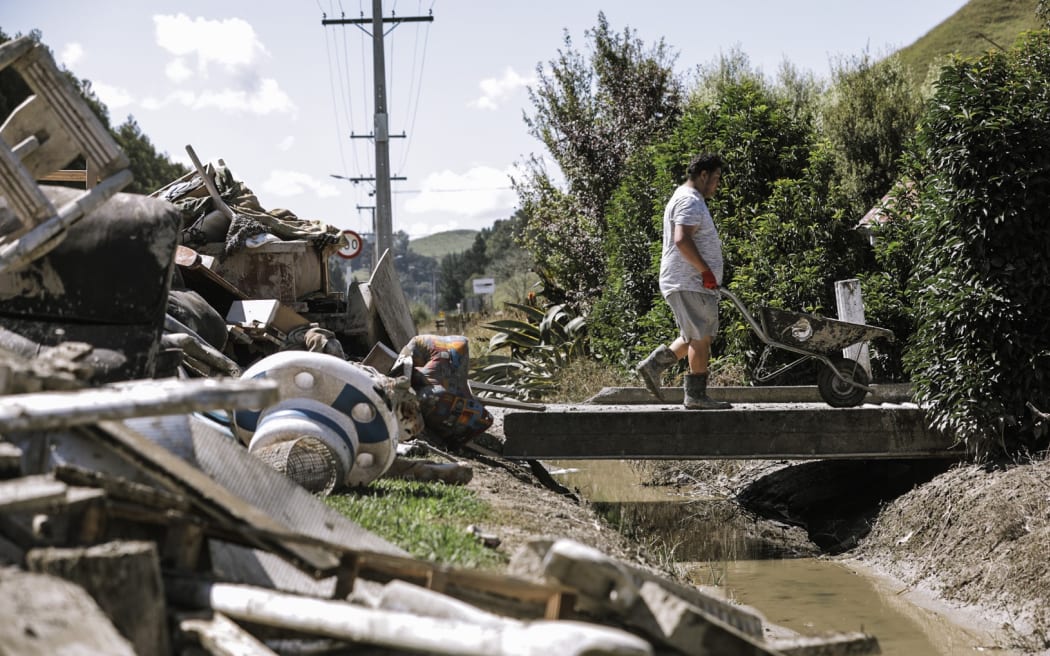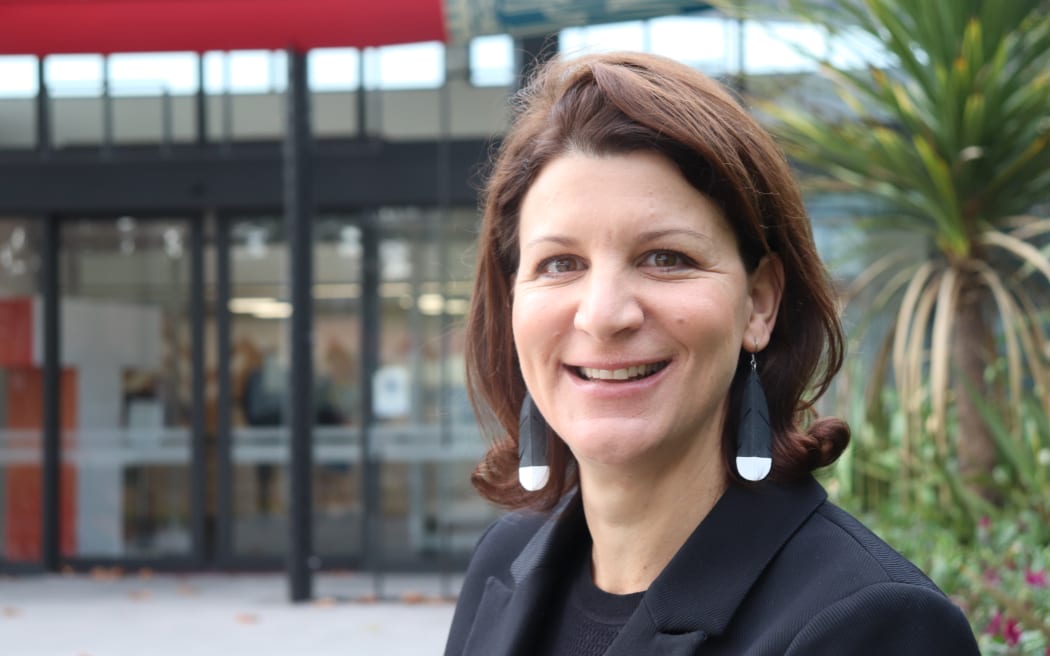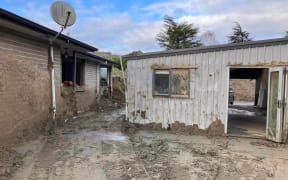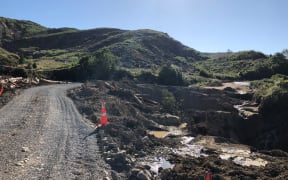
The cleanup continues in Te Karaka, a settlement inland from Gisborne, in the wake of Cyclone Gabrielle. Photo: RNZ / Sam Rillstone
Public sentiment towards local councils has fallen, with places affected by Cyclone Gabrielle feeling the strain in business-as-usual services.
The agenda for a meeting of the Gisborne District Council on 12 October details a decline in public sentiment.
"Disappointedly but understandably, we saw a decrease in some of our performance measures, including community sentiment towards our services... Services most impacted by the severe weather events recorded the most significant drop in resident satisfaction," it reads.
Gisborne mayor Rehette Stoltz said a decline in satisfaction was expected.
"Our community has been through the toughest time since 1988 [Cyclone Bola]. Our community [is] struggling, and we need to acknowledge that.
"I do think we need to put it in perspective - we were, and we still are, in a massive recovery process. Which means, sometimes, your business as usual might not be as timely as it used to be."
She said this was particularly true when it came to satisfaction with the region's roads.
Following Cyclone Gabrielle, public communications with council went up 400 percent.
"We do have to prioritise certain items before others," she said - and those priorities might not always align with the community's expectations.

Gisborne mayor Rehette Stoltz. Photo: RNZ / Tom Kitchin
But Gisborne was not alone in measuring a decrease in satisfaction.
According to the meeting agenda: "Most councils across New Zealand have decreases in overall satisfaction, perceptions of services and facilities, as well as image and reputation measures."
Local Government New Zealand president Sam Broughton said Gisborne had responded well to the crisis.
"I think we saw great leadership from Rehette and the council in Gisborne in response to the cyclone," Broughton said.
"The immediacy of needing to deal with a natural disaster means that resources including people and funding need to be focused on dealing with what's right in front of us... and that can take people away from things that would normally be day-to-day."
He said councils regularly surveyed the public to gauge satisfaction with their services - whether it was through the press of a button on the way out of a council facility, or a randomised phone survey.
The phone surveys decreased the chance of bias, as immediate opportunities for feedback, such as a red or green button on the way out of a council building, tended to favour negative responses.
In other cyclone-affected areas, similar surveys had taken place.
In Napier, a community wellbeing survey showed overall sentiment about life in Napier was lower than in 2022, with 60 percent rating their life as good or very good -- down from 70 percent last survey.
Fourteen percent of respondents expressed general concerns related to the council.
In Hastings, the council's group manager for marketing, communications and engagement, Naomi Fergusson, said they had not conducted a community satisfaction survey this past year, but in its most recent performance and monitoring reporting for September 2023, the results of a "mystery shopper" experience of customer services were down.
She, too, said this was not unexpected due to higher call volumes and complex situations caused by the storm causing longer handling times.
"There is no doubt those residents who have been most impacted by the cyclone have experienced higher frustration than normal, particularly in regards to the damage caused to the roading network," she said.
But it was not universal.
Broughton said: "We have looked at different results across the country, and they're not all done - some are on the up".
He said in places including Wanganui, Ashburton, Marlborough District, satisfaction had increased on the last survey.
Other things, like affordability, had an effect on the responses.
"If you do the surveys around an increase in rates, front of mind is affordability," he said.
"Local government collects less than 10 percent of public funds in the country, and is expected to do a whole lot with it, and it's getting harder and harder to deliver services when our single tool of funding is rates."
Results of Gisborne's most recent resident satisfaction survey
- Urban stormwater services - a decrease from 47 percent last year, to 28 percent this year
- Water supply - a decrease from 87 percent last year, to 60 percent this year
- Community engagement in council decision-making - a slight decrease from 36 percent last year, to 30 percent this year
- Helpfulness of staff - a slight decrease from 70 percent last year, to 67 percent this year
Council customer service
- (by email) a decrease from 80 percent in 2021, to 54 percent this year (2022 not measured)
- (by phone) a decrease from 81 percent last year to 56 percent this year
- (in person) a decrease from 84 percent lsat year to 64 percent this year
- (online) a decrease from 80 percent in 2021 to 50 percent this year (2022 not measured)






